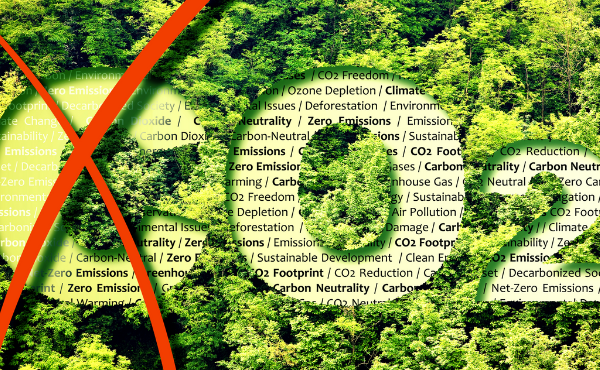The Invisible Hand Bids Adieu to Coal: Bank Exit Policies and Their Impact

Boris Vallée (Harvard Business School) will present his co-authored paper with Daniel Green on 'Measurement and Effects of Bank Exit Policies' at the 2024 ECGI Responsible Capitalism Summit on 10 September.
--------------------------------------------------------------------------
Picture this: Kevin Ball, CFO of Whitehaven Coal, confidently proclaimed in 2020 that their banking relationships were robust. Fast forward three years, and the same man is singing a different tune, lamenting the increasing difficulty of attracting external funding as a coal producer. What changed? The answer lies in the realm of bank exit policies. A study by Daniel Green and Boris Vallee from Harvard Business School delves into this phenomenon, shedding light on how these policies are reshaping the financial landscape for coal industries.
The Theory vs. Reality Debate
In theory, exit policies should make capital scarcer and more expensive for targeted firms, like those in the coal industry. Theoretically, firms would then face higher funding costs or find it harder to access capital altogether. This scenario assumes limited substitutability of capital, meaning firms can't easily find new sources to replace the lost financing. The real question, however, is whether this theoretical framework holds water in practice.
Measuring the Unmeasurable
Green and Vallee embarked on a comprehensive measurement exercise to capture the multifaceted nature of bank exit policies. They found that bank size is the main determinant of policy adoption and strength. Notably, banks with exit policies were previously providing 60% of the coal industry’s debt financing. This statistic alone hints at the significant potential of these policies to constrain capital supply to the coal sector.
Their analysis also revealed that banks’ ESG ratings and geographical location further explain the variation in exit policies. Intriguingly, the characteristics of banks' coal portfolios did not predict policy strength. This suggests that broader, non-financial factors are at play when banks decide to adopt and enforce exit policies.
Impact on Financing
Green and Vallee's study provides robust evidence that exit policies materially affect coal firms’ ability to raise capital. Banks with strong exit policies provide significantly less financing to a given firm in a given year compared to banks with weaker or no exit policies. They constructed a shift-share instrument to account for firms’ banking relationships before the adoption of exit policies, ensuring a causal interpretation of their findings. The results were striking: a one standard deviation increase in exposure to exit policies resulted in a 20% reduction in annual debt issuance.
This reduction in financing is more pronounced for smaller firms, mining firms, and firms heavily concentrated on coal. The study found limited evidence that firms could substitute the lost financing with non-exiting lenders or equity markets, indicating the substantial effectiveness of these policies in curbing coal financing.
Real-World Consequences
Beyond financing, the real effects of exit policies are even more compelling. Firms exposed to bank exit policies exhibit a contraction of their total assets. In a sample of coal-fired power plants, those owned by firms more exposed to these policies are more likely to be decommissioned following the 2015 Paris Climate Agreement. This decommissioning translates into lower carbon emissions. Green and Vallee estimate that current bank exit policies are responsible for a cumulative reduction in greenhouse gas emissions from coal power plants by one gigaton of CO2e over the 2015-2021 period—equivalent to the lifetime emissions of 20 million gasoline-powered vehicles.
Substitution Challenges
A critical aspect of the study is the analysis of whether coal firms can substitute the lost capital from exiting banks. The findings suggest that substitution is challenging. Firms do not seem to compensate for reduced debt financing through equity issuances. This lack of substitution underscores the high effectiveness of bank exit policies in creating financial constraints for coal firms.
The Bigger Picture
Green and Vallee's work connects to broader debates on how financial institutions can pursue non-financial objectives. While some argue that exit policies are relatively ineffective due to capital substitutability, this study shows that, in the coal sector at least, these policies are achieving their intended effects. The key seems to lie in the characteristics of the capital markets and industries targeted by these policies. In markets with high frictions and industries reliant on external financing, exit policies can significantly impact.
The Road Ahead
The study concludes with a broader reflection on the effectiveness of exit policies. The authors argue that for such policies to be impactful, they must be precise, verifiable, and based on a clear economic mechanism. This insight is crucial for investors and policymakers aiming to leverage financial markets to achieve environmental goals.
Green and Vallee's research provides compelling evidence that bank exit policies are not just empty promises. They have real, measurable impacts on financing and operational decisions within the coal industry, leading to significant reductions in carbon emissions. As the world grapples with the urgent need to address climate change, such findings underscore the powerful role financial institutions can play in steering industries toward more sustainable practices.
---------------------------
Boris Vallée is an Associate Professor in the Finance Unit of Harvard Business School. He teaches Real Property in the MBA elective curriculum, and previously taught the Finance II course in the MBA required curriculum. Professor’s Vallée’s research traces the motives behind and the effects of financial innovation in recent decades, focusing on innovative products, processes and objectives. He pursues this line of inquiry through empirical studies of corporate finance, household finance, public finance, and financial institutions, developing novel data sets and measures. His work has been cited by The Economist, the Financial Times, Forbes, The Wall Street Journal and the Boston Globe.
Read more:
- Access the paper here.
- Submit questions for the authors here.
- Register to join us in Berlin on 10th September.
- Banking’s Role in Climate Action: the Case for Exit Policies
Boris ValléeBanks, through divestment policies, have a disproportionate influence on what gets financed and what doesn’t.
Read more...


